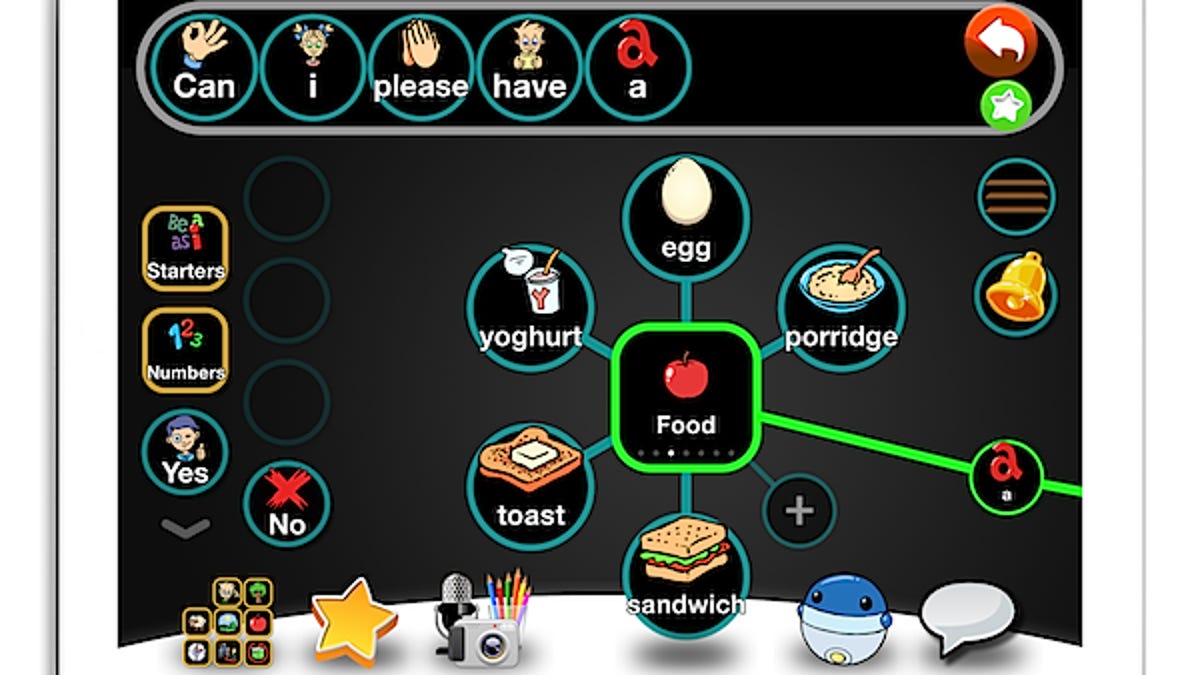Aacorn app anticipates what kids want to say
A new app out of Australia enables kids with speech impairments or developmental delays to convey their thoughts more quickly and easily.

For kids, getting parents to understand what they're thinking or feeling can be a challenge all on its own. But having additional speech impairments or developmental delays can make basic communication a serious hurdle.
Now, the Aacorn App for iPad is available for kids and teens with impairments to help empower them to communicate faster and more intuitively.
Developed for three years at the Murdoch Childrens Research Institute in Australia, the app is designed to enable children to express themselves more freely. But the app is not free -- it'll will set you back $189.99 at the iTunes Store.
The researchers experimented with a predictive approach that uses words the child selects to open up a new array of words the child most likely wants to use next. By presenting the words as they are needed, and fine-tuning these results to the child's language history over time, the researchers remove to a large extent the hunting and pecking required in many other assistive tools.
"Our approach was to ... create an entirely new solution that has the abilities and needs of each individual child at the heart of its design, and the result is a unique 'word tree' arrangement of branching pathways with an artificial intelligence that actually learns and adapts to each child's unique communication style," said Aacorn founder and creator Wayne Whatford in the institute's news release.
The app also uses a child's voice instead of a robotic or adult voice, and each word appears alongside some basic imagery (such as images or sign language) to make the desired word that much easier to see quickly. Kids can choose to use both simple and more complex words and sentence structures, and the developers say the app is also designed to expand their vocabularies.
See it in action at the Royal Childrens Hospital in Melbourne in the video below:

